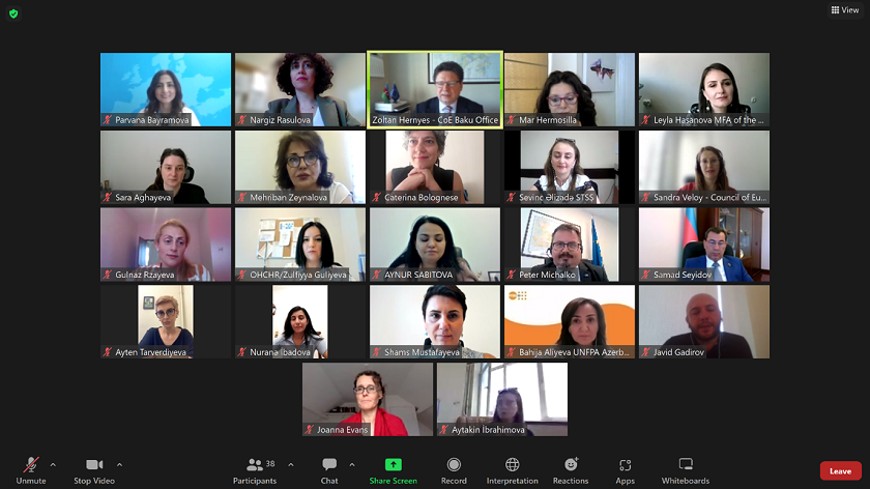On 4 July 2022, the project “Raising awareness of the Istanbul Convention and other gender equality standards in Azerbaijan” presented a gap analysis of Azerbaijani legislative and policy frameworks in line with Council of Europe and other international standards in the field of violence against women and domestic violence at an online roundtable discussion. Council of Europe experts in criminal and civil law presented the report highlighting ways in which Azerbaijan could amend domestic laws and policies to better align national documents with international standards, including the Council of Europe Convention on preventing violence against women and domestic violence.
The roundtable was attended by national and international experts and practitioners working in the field of violence against women and provided a platform to discuss ways to improve currently existing national mechanisms to prevent and combat violence. Topics discussed included the importance of education, the need to set up programmes for rehabilitation of perpetrators of violence, or to implement actions to change societal attitudes which could condone so-called “honour”-based crimes.
National actors highlighted once more their commitment towards ending violence against women in Azerbaijan and the value of the gap analysis report in their path to do so.
The report is available in English and in Azerbaijani.
This activity was organised in the framework of the project “Raising awareness of the Istanbul Convention and other gender equality standards in Azerbaijan,” funded by the European Union and the Council of Europe and implemented by the Council of Europe in their Partnership for Good Governance II 2019-2022.





